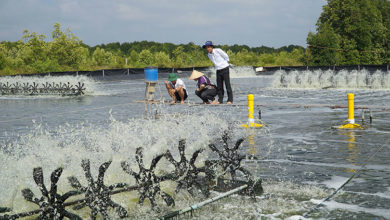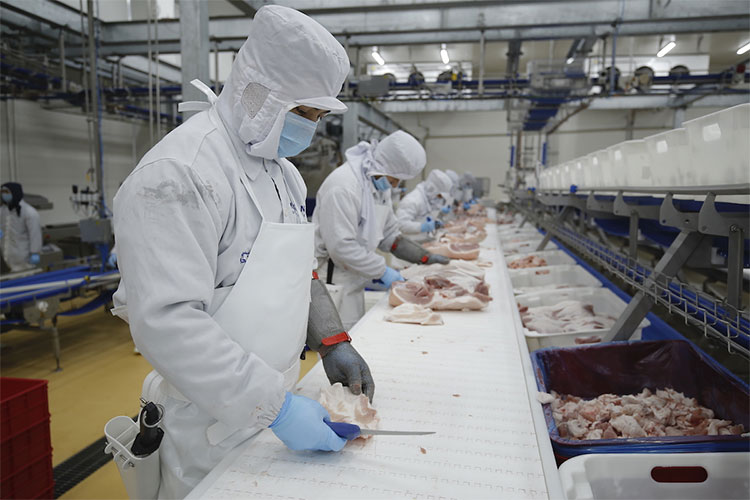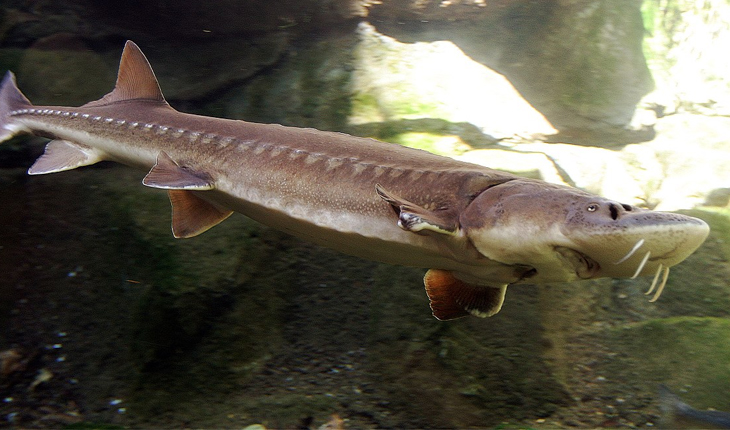Vaccine to prevent scale drop disease virus (SDDV) shows promise
Uvaxx has announced the successful development of a novel epitope-based vaccine that can defend against the scale drop disease virus (SDDV) infection in barramundi, which are also known as Asian sea bass.
According to Uvaxx, which is a subsidiary of Barramundi Group and the Agency for Science, Technology and Research (A*STAR), the vaccine is “a potential game-changer” for the sector, as SDDV has caused devastating losses to farmers. SDDV is endemic in the Southeast Asian region, and causes the fish to shed scales, develop skin lesions, and suffer high mortality rates, sometimes up to 70 percent in both young and adult fish.
The vaccine is a formulation designed to protect fish from SDDV. By combining specific parts of the virus known as epitopes that trigger immune responses, the vaccine aims to strengthen the fish’s natural defences against the virus.
According to Uvaxx, the vaccine has an efficacy rate of 75 percent and will be integrated into routine operations at hatcheries and fish farms. Currently, there are no commercially available solutions to defend against SDDV, and the team of scientists at UVAXX and A*STAR is on track to be the first to bring the solution to market.
Dr Sunita Awate, Research Director, Uvaxx said in a press release: “Through our 12 years of experience working with farmers to provide veterinary services and fish health solutions, we have witnessed first-hand the severity and devastation caused by SDDV. Asian sea bass farmers across the region need and want a solution. Having an efficacious SDDV vaccine can lead to a paradigm shift in aquaculture disease management, from a reactive to preventative approach, and transform farm production unit economics.”
A novel approach
The epitope-based technology in vaccines is novel in fish health applications, as conventional fish vaccines typically use inactivated or attenuated virus vaccines. More novel approaches, used in human health, utilise recombinant proteins, mRNA or DNA vaccines. Through the combination of A*STAR’s infectious diseases expertise and Uvaxx’s aquatic health and diagnostic expertise, the project team oversaw the end-to-end vaccine development process and gained practical experience in vaccines that meet high standards of quality and safety.
Dr Ken Loh, senior scientist at A*STAR ID Labs, said: “The vaccine development process comprised developing the virus infection model, developing advanced lab systems to study the virus, detailed mapping of viral proteins to identify immune triggering parts, rigorous lab trials and efficacy analysis.”
Professor Renia Laurent Claude Stéphane, A*STAR senior fellow, added: “Derived from pathogen proteins, the epitopes are the targets of specific arm of the immune system such as antibodies that neutralise viral particles, and killer cells to directly eliminate infected cells and regulate the immune responses. In many ways, this epitope-based vaccine design is novel for the aquaculture sector and we are energized and committed to identify more use cases of this technology together with Uvaxx.”
The next steps will involve translational research to bring the product to market, conducting commercial-scale field trials with local farm partners and concurrent assessment of vaccine safety and efficacy throughout the process, setting up the vaccine manufacturing process and securing regulatory approval.
Source: Thefishsite






